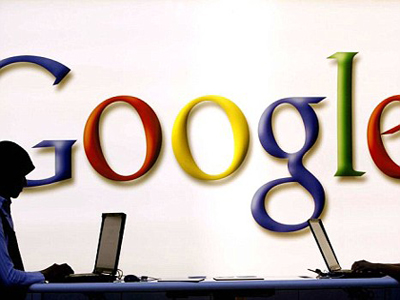Google No Longer Scanning Apps for Education Users' Email
Oh what a mess.
On Wednesday, Google’s Bram Bout, Director of Google for Education, announced that the company will no longer scan the email addresses of 30 million students, teachers and administrators who use the Google Apps For Education suite. Google has also removed the "enable/disable" toggle for the Apps for Education Administrator console.
"We're also making similar changes for all our Google Apps customers, including Business, Government and for legacy users of the free version, and we'll provide an update when the rollout is complete," Bout writes. He also points to a Hangout on Air on the Google for Education G+ page this Thursday at 9am PST to talk about the changes.
According to a press release from Consumer Watchdog, Google didn't stop scanning email addresses because it's "protecting students," but because the search engine giant faces questions about the legality of the scanning. The non-profit accuses Google of doing whatever it wants without asking anyone's permission, and only backs down when faced with possible violations.
"Google executives are always pushing the limits and only back off when their hands are caught in the cookie jar," said John M. Simpson, Consumer Watchdog's Privacy Project director.
Consumer Watchdog acknowledges that Google doesn't display ads by default, but does raise concern that the company could be collecting data via scanning in order to serve up custom advertisement on other websites. The student account scanning could also violate the Family Educational Rights and Privacy Act, a law that protects educational records.
Consumer Watchdog is now asking New York State Governor Andrew Cuomo, who appointed Google's Eric Schmidt to the NY Smart Schools Commission earlier this month, to remove Schmidt from the Commission immediately. The organization also wants Cuomo to prevent Google from providing new technology to the state's schools.
The IDG News Service reports that Google is already facing at least one lawsuit challenging the email scanning. The case "Google Inc. Gmail Litigation," number 5:13-md-002430, is being heard in U.S. District Court in San Jose. Plaintiffs accuse Google of scanning content in their Gmail messages, which allegedly breaches their privacy and violates wiretapping laws.
Get Tom's Hardware's best news and in-depth reviews, straight to your inbox.
A Google spokesperson told the IDG News Service that the decision to stop scanning those email addresses has nothing to do with the lawsuit. "The changes announced are just a continued evolution of our efforts to provide the best experience for our users, including students," the spokesperson wrote in an email.

Kevin Parrish has over a decade of experience as a writer, editor, and product tester. His work focused on computer hardware, networking equipment, smartphones, tablets, gaming consoles, and other internet-connected devices. His work has appeared in Tom's Hardware, Tom's Guide, Maximum PC, Digital Trends, Android Authority, How-To Geek, Lifewire, and others.
-
bustapr at least now I wont have to compress every program I write or app I send through mu university email. thats good I guess.Reply -
wussupi83 Google offers free services in return for reading your data... that's their business model. Nobody makes you use Google services.Reply -
Onus Wussupi83 makes a very good point. Google is not responsible for users' failure to do their due diligence. I do NOTHING online without the assumption that, regardless of any privacy policy, sooner or later the right amount of money will change hands, and anything I've typed or uploaded will be made available to advertisers, parasites' alphabet agencies, or others to whom it was not intended. Still, if I am relatively certain that my data will be misused (giving it to advertisers is, by definition, misuse), I don't use that service. I use startpage.com or duckduckgo for searches, and minimize my use of other Google services.Reply -
back_by_demand To both the above posters, I understand that Google makes money from advertising and I accept if I visit a website there will be ads and banners. What I don't accept is for any company to surreptitiously scan private communications for the same purpose. It is, as the article suggests, in breach of wiretap laws. Just because they can they shouldn't. The phone company has the ability to listen in on your calls if they wanted but if we found out that the CEO of AT&T had been recording all telephone calls and scanning the content as a way to mine information you can bet he would be in a Federal prison for 30 years. So no, it is not acceptable.Reply
